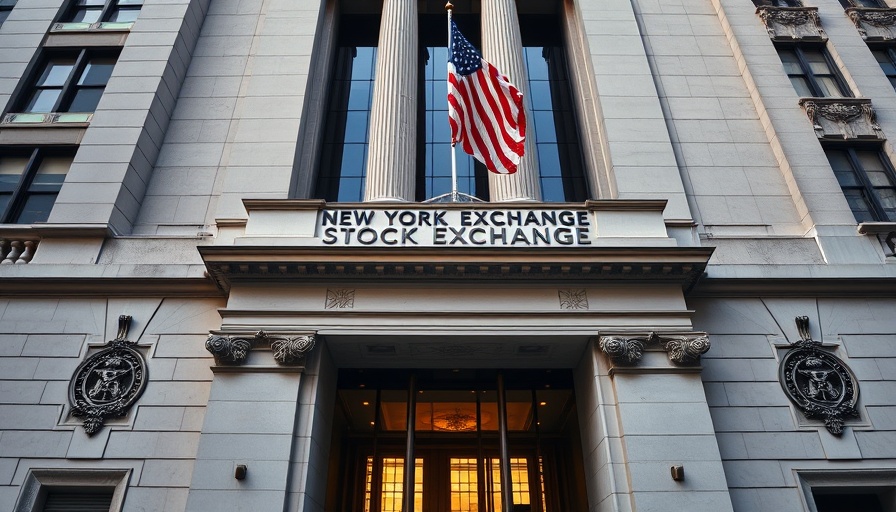
The Unfolding Sell-off: What It Means for Wall Street
Wall Street is currently experiencing a daunting sell-off, particularly in the tech sector—an industry that was once regarded as a beacon of growth and innovation. Recent trends reveal a significant downturn, with major tech stocks losing a staggering amount in market capital, totaling over $2.7 trillion. This decline comes in the wake of soaring bond yields, rising oil prices, and concerns about slowing growth across the economy, creating a perfect storm for investors.
Tech Giants Take a Hit: The $2.7 Trillion Loss
The "Magnificent Seven," which includes tech giants like Apple and Microsoft, have faced particularly severe losses, sharply diminishing investor confidence. Apple's market capitalization dipped by $529 billion, while Tesla experienced an alarming 33% drop in value within the same timeframe. As these corporations struggle, the Nasdaq index has plummeted to levels not seen since last Spring, reflecting the weight of these financial losses.
Understanding the Forces Behind the Slide
A recent uptick in investor anxiety stems from both international and domestic concerns. Trade tensions, particularly as they relate to tariffs threatened by the Biden administration, have raised alarms about potential global economic downturns. Coupled with rapidly rising oil prices, which could further exacerbate inflation and affect consumer and business spending, it's clear many factors are in play.
The Broader Economic Context: Market Reaction
The sell-off has significant implications for the broader economic landscape, and analysts are now adjusting their economic forecasts. Rising oil prices approaching $100 per barrel could force the Federal Reserve to reconsider its interest rate policies. Coupled with higher yields on treasury bills, mortgage rates and other loan costs are also on the rise, indicating a potentially lengthy period of economic adjustment.
The Impact on Local Businesses: Bay Area Implications
The turmoil in the financial markets has rippling effects on local businesses, especially in tech-heavy regions like Silicon Valley. As venture capital funding becomes more cautious amid market uncertainty, startups may find it increasingly difficult to secure necessary investments. This could stall innovation and growth, hindering the vibrant startup culture in the Bay Area. Business leaders are now called upon to adapt their growth strategies to navigate these challenges effectively.
Looking Ahead: Future Predictions and Recovery Strategies
Despite the current turmoil, it is crucial to remember that markets are cyclical. Experts suggest it may be prudent for investors to look beyond immediate losses and consider long-term recovery strategies. Identifying stable investment avenues and focusing on businesses that prioritize sustainability, innovation, and adaptability will likely yield positive returns when the market stabilizes.
What You Can Do: Engaging with the Market
For business leaders and entrepreneurs facing these economic challenges, several strategies can help mitigate risk. Engaging in corporate partnerships, focusing on sustainable practices, and diversifying revenue streams are essential tactics. Staying informed on market trends, employment laws, and financial regulations will allow businesses to navigate this uncertainty with confidence.
Final Thoughts: Navigating the Market's Ebb and Flow
As Wall Street continues to grapple with significant volatility, now is the time to reassess personal and business strategies in light of shifting economic conditions. Whether you’re an investor or an entrepreneur, understanding the nuances of current market trends is critical for survival and growth in this evolving landscape.
 Add Row
Add Row  Add
Add 



Write A Comment